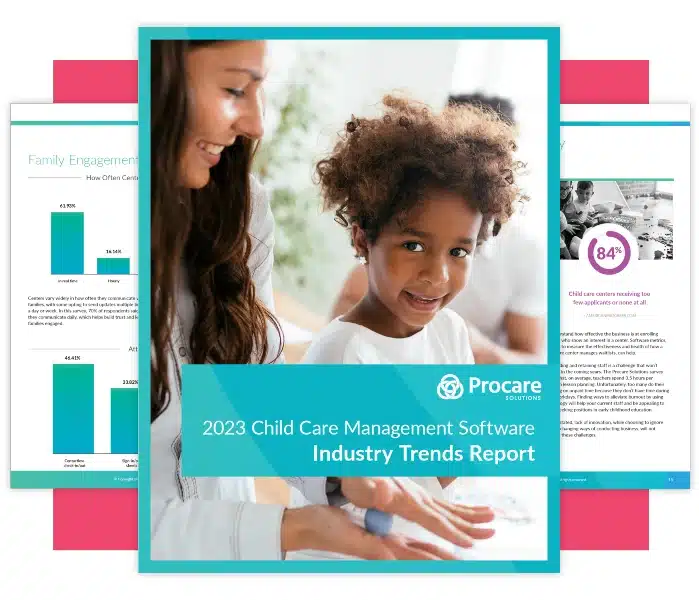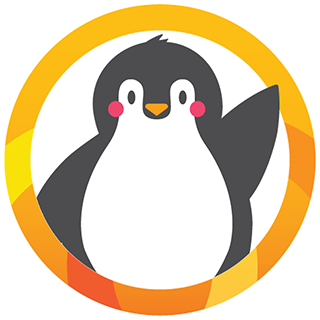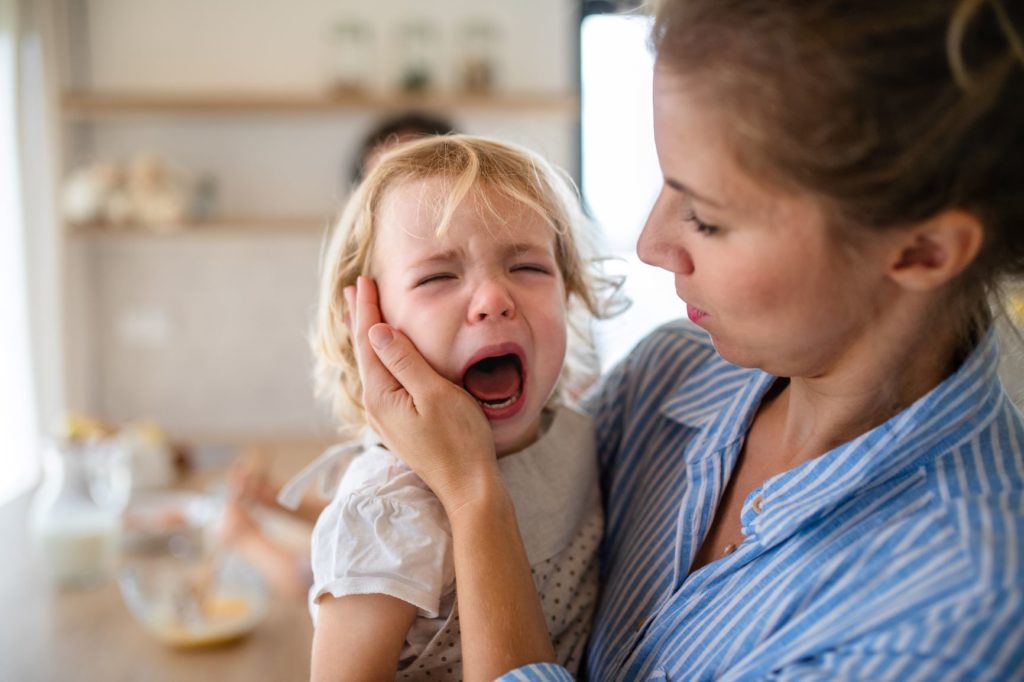
Self-regulation is one of the most important areas of skill development for children in the first five years of life. Our favorite definition comes from researchers at Duke University, who describe self-regulation as the act of managing thoughts and feelings to enable goal-directed actions. If we want our children to successfully set, manage and achieve their goals in life, it’s crucial that we give them a solid foundation in self-regulation skills.
In this week’s blog post, we’re taking a closer look at the importance of self-regulation in child development and early learning. We’ll explore the definition and components of self-regulation, how self-regulation is developed and observed in children of various ages, and how both parents and child care providers can promote self-regulation in early child development.
What is Self-regulation in Child Development?
As we’ve already mentioned, self-regulation is a child’s ability to manage thoughts, feelings and behaviors in a way that enables goal-directed actions.
Self-regulation is sometimes understood as a single skill, but it may also be useful to break it down further into clusters of skills that include:
- Executive Function – A set of mental skills that includes working memory, flexible thinking and self-control. These skills are associated with the ability to set and achieve goals.
- Emotional Regulation – A set of mental skills and habits for dealing with big or uncomfortable feelings like anger, frustration, excitement, anxiety or stress. These skills are associated with the capacity to soothe, self-calm and cope with uncertainty in the external environment.
- Behavioral Regulation – A set of mental skills that allow a child to engage healthy behaviors and avoid unhealthy behaviors as a means of regulating negative emotions. These skills are associated with the capacity to self-manage classroom behavior, inhibit negative behavioral impulses and focus on goal attainment.
The importance of self-regulation in child development is almost impossible to overstate. Kids who learn to self-regulate are more likely to succeed academically, stay out of trouble and achieve their long-term goals as they get older. They’re better at coping with anxiety and frustration, less resistant to environmental changes and more resilient. They’re also better at completing tasks, focusing on a task, shifting their attention when needed and working in teams.
Studies have shown that stronger self-regulation skills developed in early life are a significant predictor of performance in school, interpersonal relationships and minimizing behavioral challenges later in life.
How Does Self-regulation Develop?
When it comes to basic emotional and behavioral self-regulation, every child is different. Kids naturally vary in their early self-regulation skills for biological and genetic reasons that are well-documented by child development researchers.
But just like learning to count, read or write, emotional and behavioral self-regulation are skills that can be taught through direct instruction and intentional practice with the right combination of motivation/incentives, caregiver support and appropriate environmental/structural context.
When we’re thinking about nature vs. nurture in a self-regulation context, both are important. In the race to develop these crucial skills, the natural tendencies of a child dictate their starting point on the race track. Some kids start off a little further ahead, and some a little further behind. Some may require more individual attention, and some less, but they can all reach the finish line with effective teaching and support from caregivers.
Observing Self-regulation in Child Care Age Groups
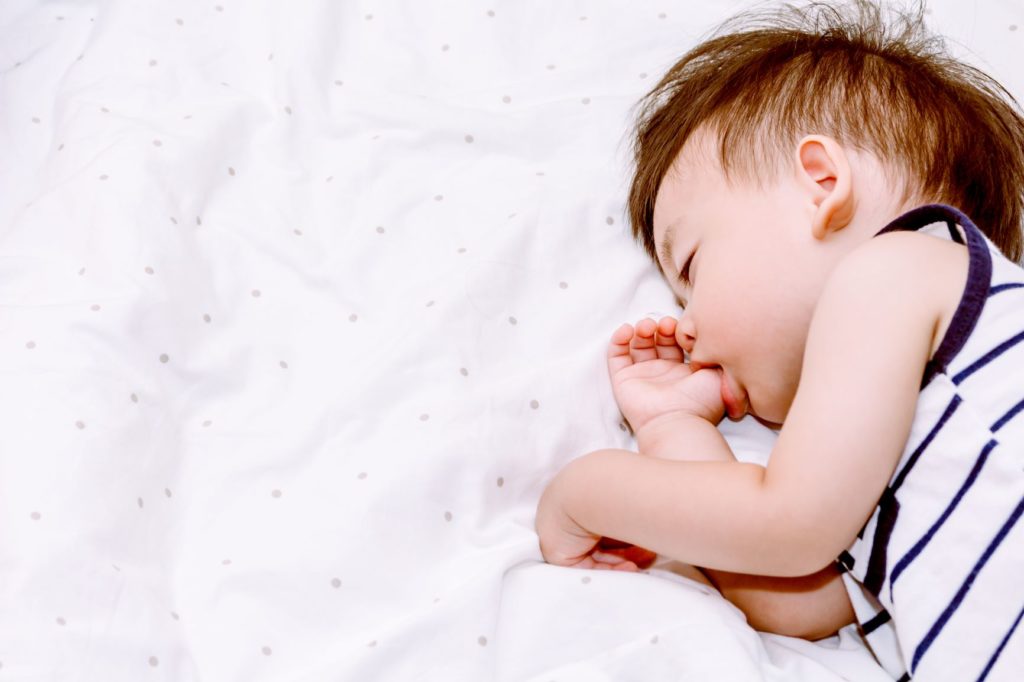
Self-regulation skills become increasingly important as kids get older and face greater demands on their attention, focus and ability to self-manage. As kids grow and develop, we can observe a variety of novel behaviors that reflect a growing capacity for self-regulation. Below, we highlight some of the key behaviors associated with positive self-regulation in infants, toddlers and preschoolers.
Self-regulation in Infants (Birth – 18 Months)
Infants are in the very earliest stages of developing self-regulation skills. Infants are dependent on caregivers to meet all of their needs. They often express those needs by crying, but this shouldn’t be mistaken for poor self-regulation. Parents and caregivers can observe self-regulation in infants through self-soothing behaviors like sucking fingers or a pacifier, or shifting their gaze or attention when they feel overwhelmed.
Self-regulation in Toddlers (18 Months – 3 Years)
Young minds develop rapidly and toddlers are well on their way to developing positive self-regulation between 18 months and three years of age. During this period, toddlers should be able to focus their attention on receiving instructions or completing a task for short periods. They may start labeling their feelings, describing them to others and asking adults for help dealing with strong feelings that they can’t yet manage. The ability to delay gratification, a key component of self-regulation, also begins to appear in toddlers.
Self-regulation in Preschool Kids (3-5 Years)
Preschool-aged kids should be rapidly developing their capacity for self-regulation. This includes the ability to recognize a broad range of feelings in themselves and others, and the ability to empathize by placing themselves in someone else’s shoes.
Preschoolers can learn intentional emotional regulation strategies from caregivers, such as taking deep breaths, counting to 10 and using self-talk to manage anxiety, frustration and other emotions. Implementing these skills effectively will allow preschoolers to focus their attention for longer periods, increasing their ability to tackle complex and difficult tasks.
How to Promote Self-regulation in Child Development
Now that we’ve reviewed the importance of self-regulation in child development and the role that caregivers can play, let’s take a closer look at exactly how both parents and child care providers can promote self-regulation in child development settings.
Build Positive Relationships with Every Child
Building positive relationships with children provides the basis for the acquisition of self-regulation skills. This begins with the caregiver’s understanding that kids who demonstrate a lack of focus or poor emotional regulation are not “bad kids” or “out of control” – they’re kids who need extra support and care when it comes to developing self-regulation.
When caregivers provide this support through warm and responsive interactions, addressing problem behaviors in helpful ways, and providing emotional and physical comfort when a child is distressed, a relationship of trust and caring is formed that provides a basis for the development of self-regulation skills.
Create a Structured Environment
As with other kinds of skill development, learning self-regulation requires a steady progression of challenging situations for children to master. In the child development context, caregivers can support that progression by offering a structured environment that is designed to support the acquisition of self-regulation skills.
To establish a structured learning environment for effectively promoting self-regulation, caregivers should:
- Make the environment feel inviting and welcoming without encouraging off-task behaviors
- Ensure optimal temperatures, lighting and noise levels
- Use walls and dividers to minimize distractions and help kids focus on their tasks
- Manage traffic flow in the environment to minimize unwanted distractions
- Arrange desks and tables in task-appropriate patterns (group seating for group tasks, row-seating for individual tasks).
Help Kids Understand the Big Picture of Goal Achievement
Earlier, we defined self-regulation as the ability to control emotions and behaviors to enable goal-directed actions. One of the ways caregivers can support kids’ development of self-regulation is by helping them recognize goals, set their own goals, and understand how controlling their emotions and impulses will help them achieve those goals. This is especially true for kids who are struggling to learn impulse control.
Goals for toddlers and preschool kids are often related to learning, developing empathy or strengthening social relationships.
Caregivers can say things like:
“We don’t talk when the teacher is talking because we want to hear the instructions and learn something new. There will be time later for you to share your ideas with your parents or friends.”
“We don’t take Timothy’s pencil without asking because that will make Timothy feel sad when he has nothing to write with. If you make Timothy sad, he may not want to sit with you anymore. If you need a pencil, you can ask a friend or teacher to borrow one.”
“We have to share the toys or our friends won’t want to play together anymore. Don’t you want to have friends to play with? Why don’t we give Sarah a turn? Later on, it can be your turn again.”
Explaining goals in this way helps kids see the “Why?” behind self-regulation and adopt better strategies for controlling their actions and impulses.
Practice Positive Discipline
Self-regulation skills help children and adults achieve their goals, but they also help avoid the negative consequences of bad behavior. As kids develop cognitively, they need to recognize that bad behavior has consequences and know what those consequences will be so they can make good choices.
As caregivers, our job is to provide a structured environment with consistent rules and consequences. The idea behind positive discipline is to address behavioral issues through mutual respect, problem-solving and personal accountability – instead of resorting to punishments that cause resentment and only work in the short term.
Teach Self-regulation Skills + Strategies
When kids haven’t learned to cope with strong emotions, they may resort to “acting out” behaviors like yelling, interrupting others or tantrums. To curtail these behaviors, parents and child care providers should teach kids positive self-regulation skills and emotional coping strategies.
Kids can learn to deal with big or uncomfortable feelings (frustration, anxiety, stress, etc.) with simple responses like deep breathing, counting to 10, taking a walk or writing in a journal. Strategies for behavioral self-regulation and impulse control can include self-distraction, focusing on another activity, playing a mental game or getting more exercise throughout the day. Kids develop executive function by playing games and engaging in activities that challenge them at an appropriate level to pay attention, use their imagination, follow rules and control impulses.
Use Games to Practice Self-regulation
Playing board games or card games can help kids develop self-regulation skills while they increase their proficiency in math and language. They learn to act prosocially by sharing the game pieces, taking turns, waiting patiently and quietly while someone else takes a turn, negotiating with others and playing fair.
Playing games helps kids learn to cope with the big emotions that accompany winning and losing. Parents can coach their kids to win and lose gracefully by congratulating their opponent on a job well done and asking to play again if they had fun.
Stay Positive and Be Patient
Kids don’t develop self-regulation skills overnight – it’s a lifelong process that takes time and patience from caregivers. It’s also important to remember that kids who struggle with executive functioning and self-regulation skills aren’t “bad kids” – they’re just a little bit behind in development and need some extra support to catch up.
Caregivers make a real difference when they can stay positive and patient while providing the structure, lessons and encouragement that kids need to develop their capacity for self-regulation.
Measure Self-regulation Progress with Procare Solutions
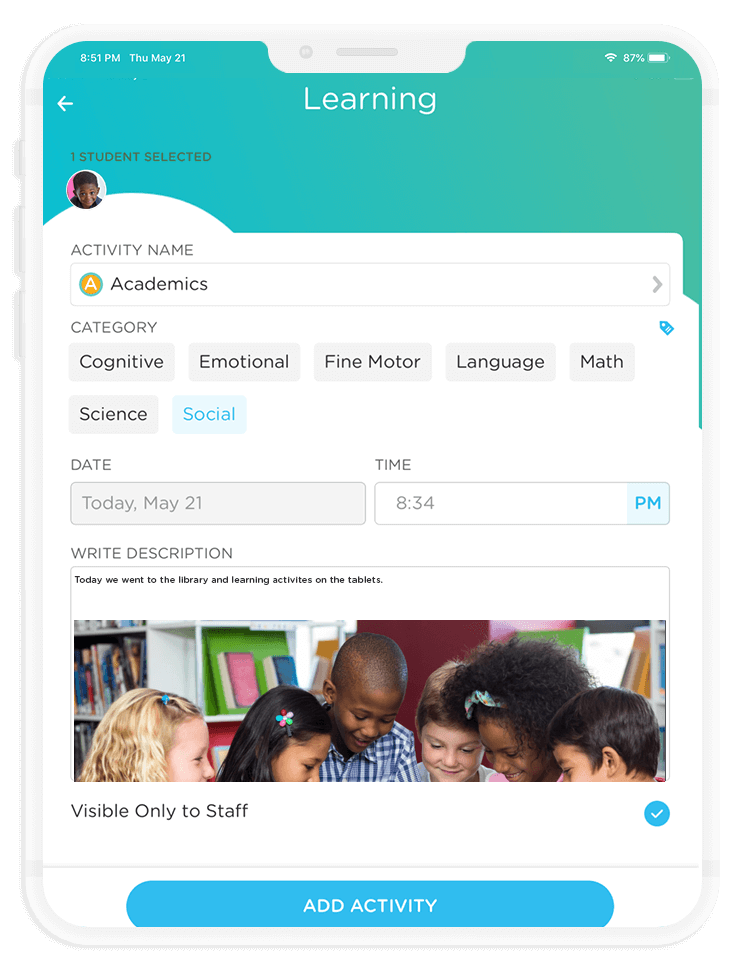
Procare provides trustworthy, modern and easy-to-use software that helps child care providers teach and promote self-regulation in their centers.
Our expertise in child care has helped us create simple solutions for planning lessons and activities that support social/emotional development, capturing picture/video milestones that demonstrate progress in self-regulation and sharing that progress with parents through our parent engagement app.
With Procare, you’ll be able to monitor each child’s progress in developing self-regulation, easily share that progress with parents, and customize your lesson plans to have the greatest impact on every child’s success.
Ready to get started?
Request a Demo
Request a demo and talk with one of our friendly Procare experts to get a tailored child care solution for the unique needs of your business.


